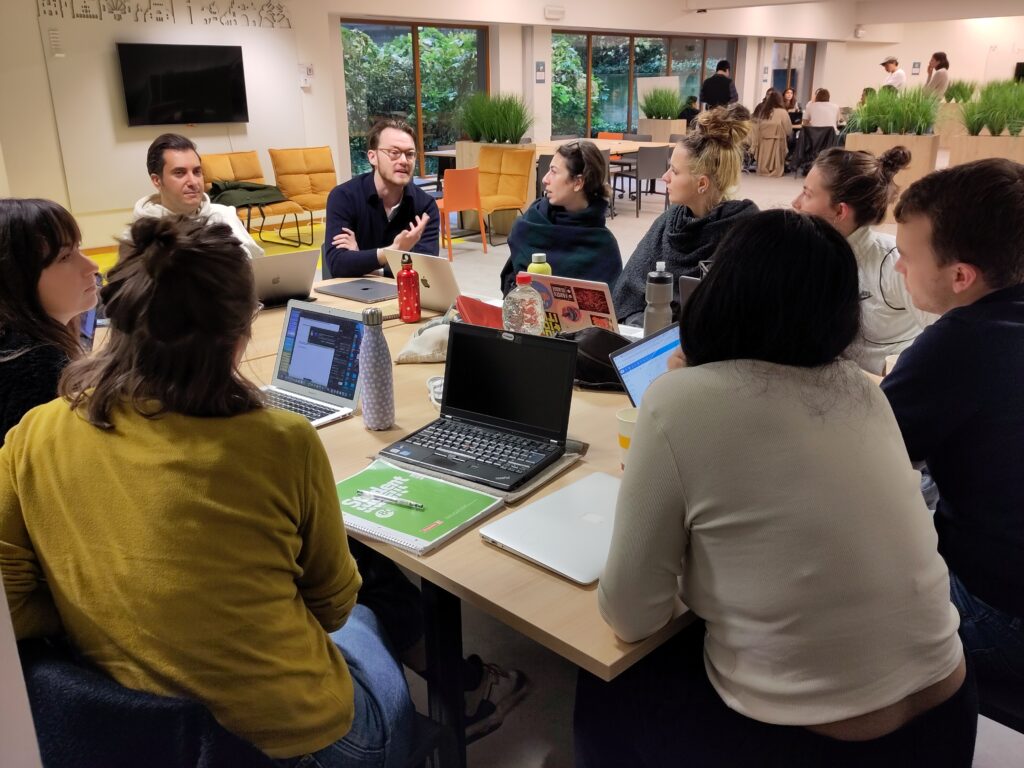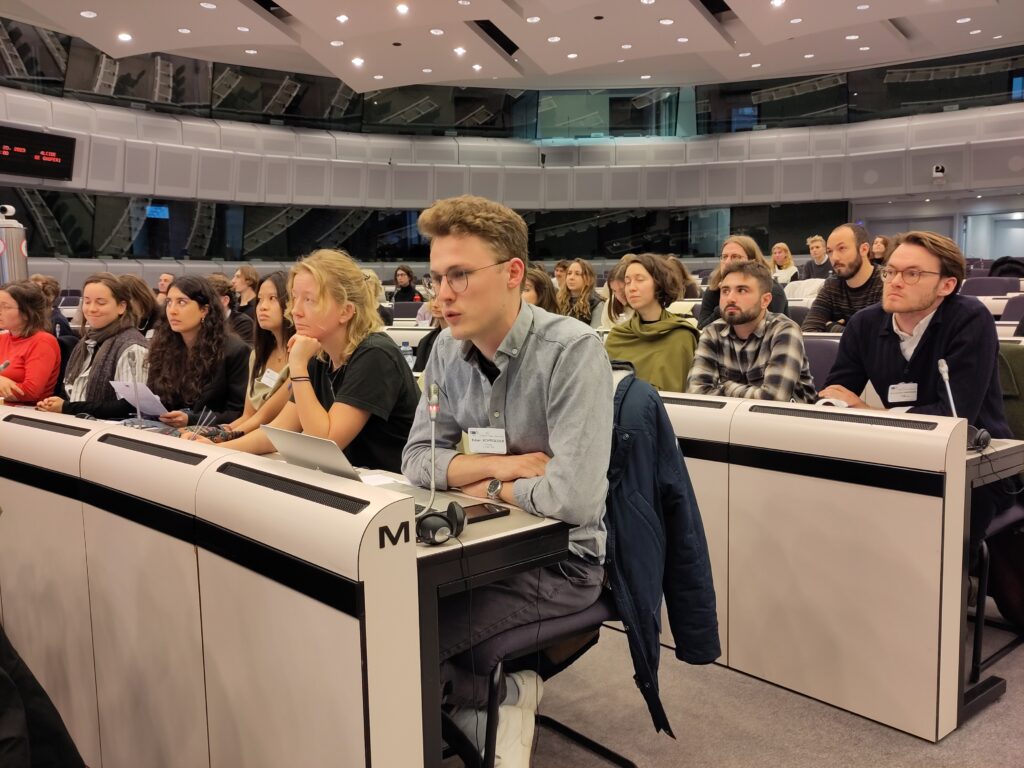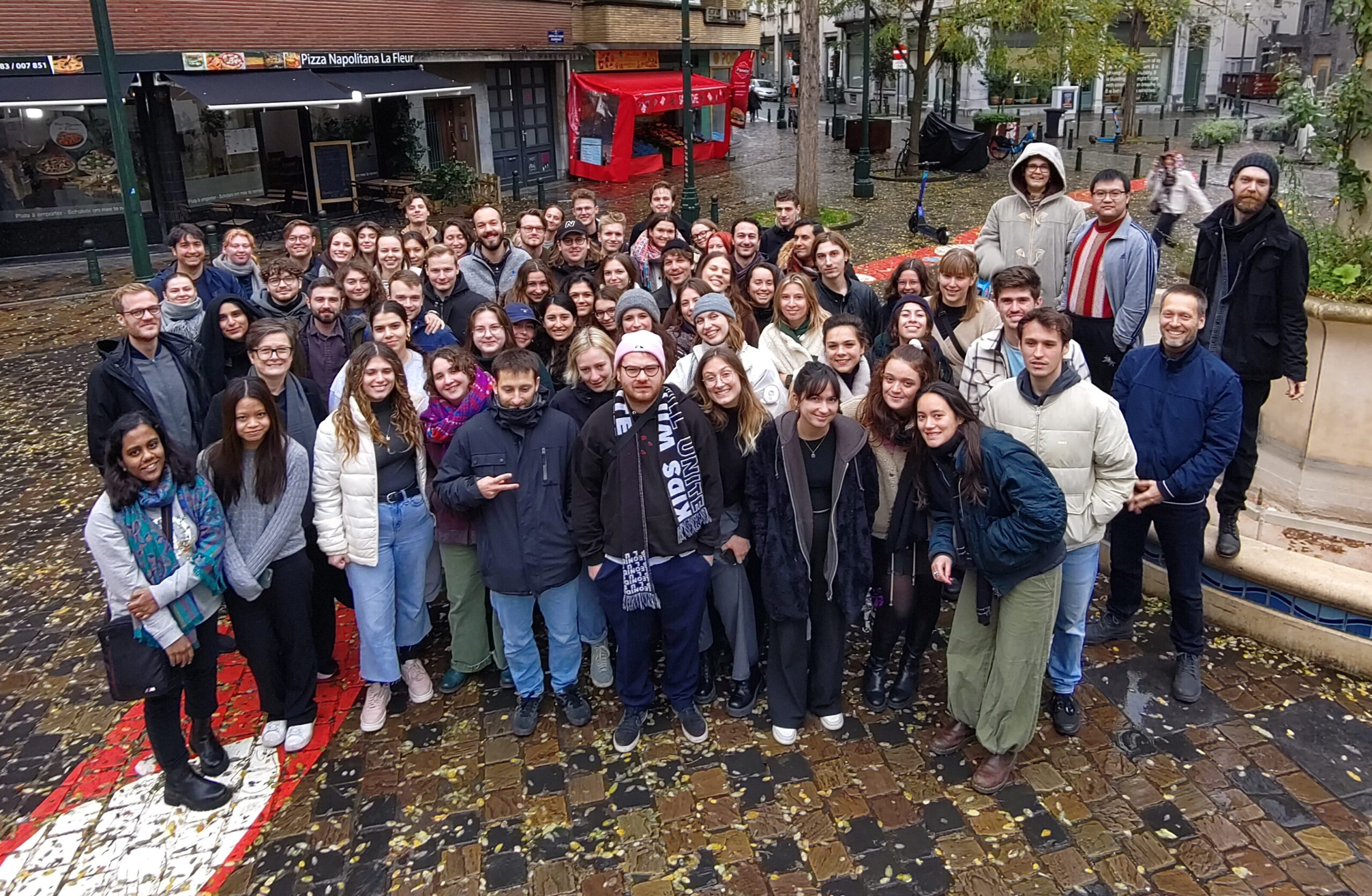After months of intensive collaboration and extensive research, the 2024 class of Cross-border Journalism Campus (CJC) investigations are finally underway, marking a significant contribution to the landscape of investigative journalism education and practice in Europe.
The Cross-border Journalism Campus is a pioneering education program developed to equip the next generation of journalists with cross-border collaborative journalism skills.
The second cohort of the CJC brought together 75 students from a consortium of several universities and journalism schools, who collaborated over nine months on their joint projects.
Arena for Journalism in Europe is a partner in the consortium and has co-developed the program along with the University of Gothenburg in Sweden, the University of Leipzig in Germany, and the Centre de Formation des Journalistes Paris & Lyon (CFJ) in France.
The investigations resulting from this collaboration are published in cooperation with national and international media partners such as Mediapart (France), mdr (Germany), and EUobserver (Belgium), as well as across various media outlets throughout Europe.
This year’s investigations focused on labor and migration issues within the European Union. More publications will follow in the coming days, you can find all of them over the next weeks collected on the CJC website.

Cross-border Journalism Campus: Developing cross-border collaborative journalism education
This collaborative initiative involving three journalism programs represents an innovation in journalism education. Lecturers, academics, practitioners from all universities, and external experts accompanied the student teams throughout the publication process of their cross-border projects.
At the University of Gothenburg the team consisted of Brigitte Alfter, lecturer and director of Arena for Journalism in Europe, Ulla Sätereie, program director of the Master Investigative Journalism, Adriana Homolova, guest lecturer and data journalist at Arena for Journalism in Europe and Follow the Money, Helena Löfving and Sandra Foresti, experienced data journalists and lecturers in data journalism, and Sarah Pilz, guest lecturer in cross-border collaborative journalism.
At the CFJ in Paris, Cédric Molle-Laurecon, deputy director at the CFJ, and Edouard Perrin, lecturer at the CFJ and member of the ICIJ, the global journalism network behind investigations such as the Panama Papers, were in charge of the lectures.
At the University of Leipzig, the team consisted of Uwe Krüger, Felix Irmer, Maria Hendrischke, and Adrian Breda, all journalists, journalism lecturers, and academic researchers.
The CJC year included an editorial meeting in Brussels, where the students also met several guest speakers and visited the European Commission to get an impression of the institution and meet officials from the Directorates-General.

Cross-border journalism campus: two-year project to pass on its experiences – and continue in the future
The significance of the Cross-border Journalism Campus extends beyond its immediate educational impact, bridging the gap between traditional journalism education and the evolving demands of the industry.
After undergoing an evaluation, which will also involve academic researchers, CJC’s findings and takeaways will be disseminated with the industry and other journalism training programs to shape the future of investigative journalism in Europe and beyond.
Following development, testing, and documentation, the pilot cooperation model of the Cross-border Journalism Campus proves its flexibility, enriching existing curricula and demonstrating high transferability potential. National curricula remain unchanged but are adapted to integrate cross-border cooperation and European perspectives.
While supported by the Erasmus+ program for higher education by the European Union, the project maintains full editorial independence, ensuring integrity and impartiality.
Stay updated on all news and recent developments regarding the CJC project by visiting the website: https://crossborderjournalismcampus.eu/
